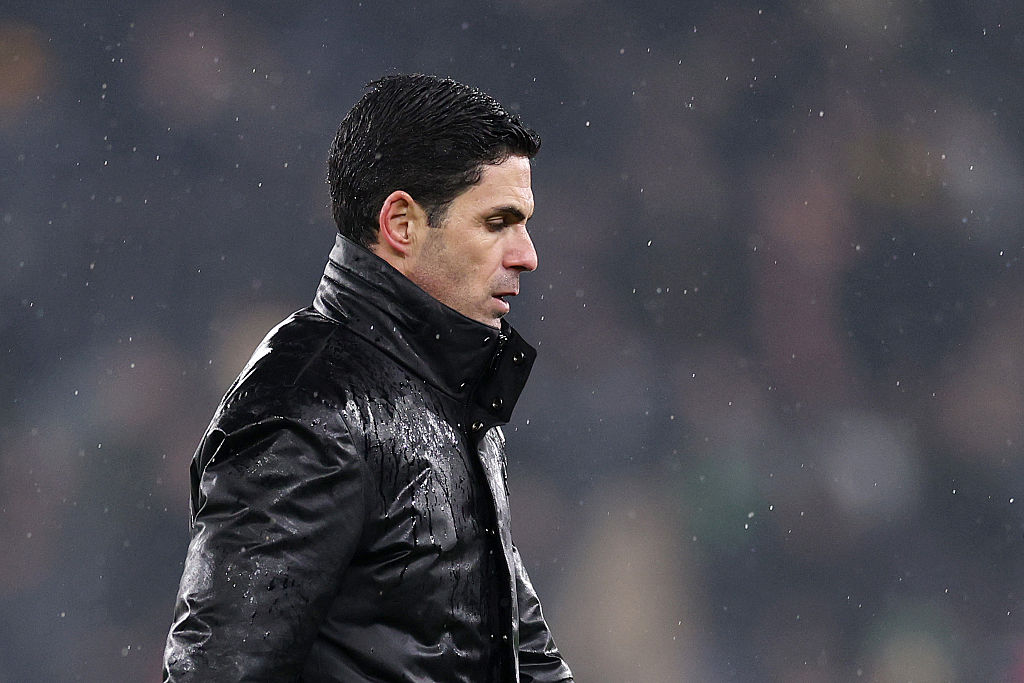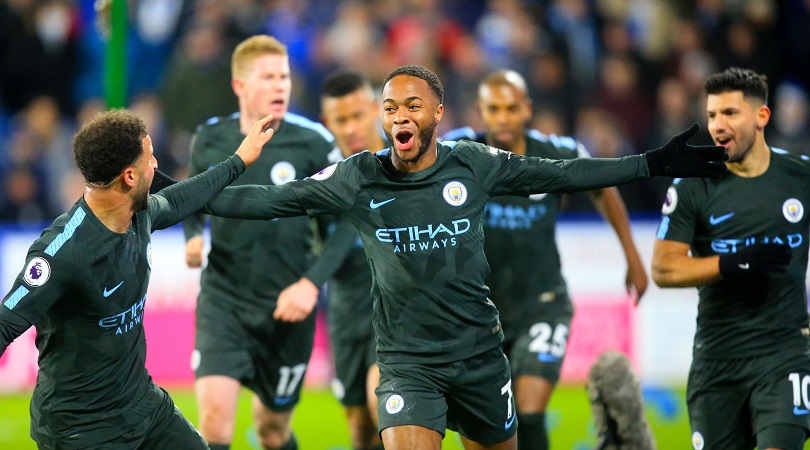
Who's the greatest?
Manchester City have enjoyed a magnificent start to the 2017/18 season, prompting many to wonder where Pep Guardiola’s outfit rank among the greatest teams in Premier League history.
It’s still a little too early to include this City side among the best of all time, but they could certainly make the cut in a future edition of this list. For now, though, they’re not part of the top 10 – but who is?
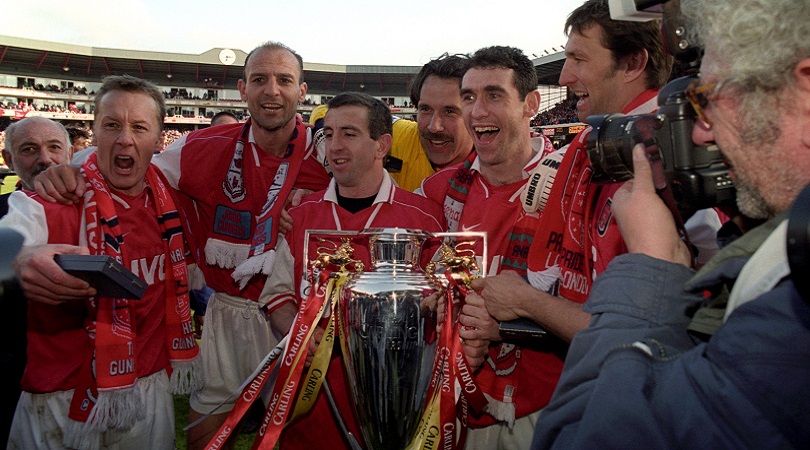
10. Arsenal (1997/98)
Later Arsenal sides were more technically gifted, but many players who faced both suggest that Arsene Wenger’s first Arsenal champions were the best all-round team. They mixed attacking flair with physicality, essentially thanks to the combination of a modern, foreign forward line and an old-school English back four.
Indeed, rather than technical quality, this side was renowned for its physical attributes: pace, strength and stamina. Dennis Bergkamp was the league’s outstanding individual, and his guile worked excellently with Nicolas Anelka’s sheer speed. The first half of their campaign was relatively unexciting, but a run of 13 wins from 14 games, including 12 clean sheets, meant Arsenal won the title with two games to spare.
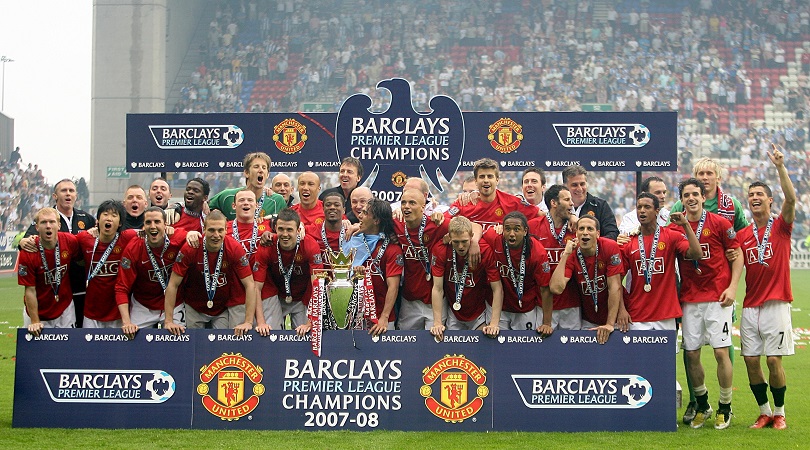
9. Manchester United (2007/08)
A truly remarkable side that simply had everything. Edwin van der Sar was back to his peak, while Rio Ferdinand and Nemanja Vidic were the best centre-back combination in Europe.
Further forward, Paul Scholes, Owen Hargreaves and Michael Carrick were arguably the three most intelligent English midfielders of their generation, while the attacking trio of Cristiano Ronaldo, Carlos Tevez and Wayne Rooney rotated at will, keeping the opposition guessing. Ronaldo, in particular, was simply unstoppable – this campaign helped him win the Ballon d’Or.
The supporting cast were particularly impressive: the likes of Park Ji-sung, Darren Fletcher and John O’Shea weren’t the most revered players, but were intelligent tactical options who helped nullify opponents as part of the increasingly sophisticated game plans supplied by Sir Alex Ferguson - and Carlos Queiroz, who left Old Trafford in summer 2008 after becoming "The closest you could be to being the Manchester United manager without actually holding the title,” according to non other than Fergie himself.
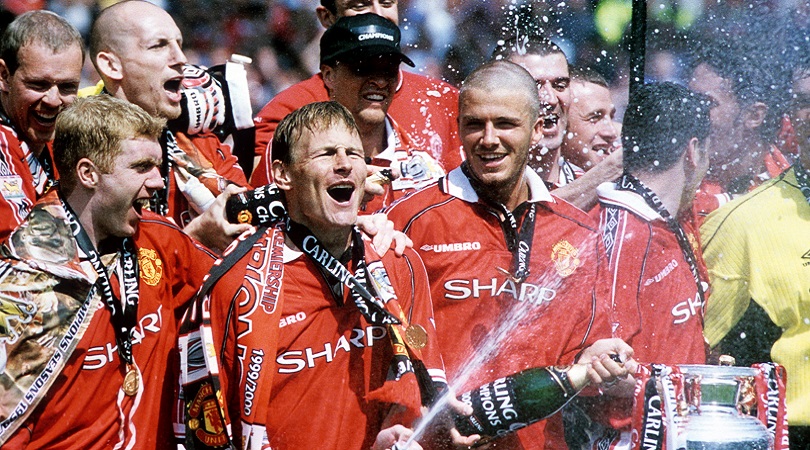
8. Manchester United (1999/2000)
It may seem controversial to include this team ahead of the famous treble winners of the previous season, but in 1999/2000 United improved their points tally by 12 and scored 17 extra goals. Whereas in 1998/99 they required a final-day comeback to sneak the title by a point, in 1999/2000 they triumphed by 18.
It was largely the same team as the treble-winners: the best midfield quartet of the Premier League era in David Beckham, Paul Scholes, Roy Keane and Ryan Giggs; further forward the partnership of Andy Cole and Dwight Yorke backed up by super-subs Teddy Sheringham and Ole Gunnar Solskjaer.
The only weakness was between the sticks, where Mark Bosnich proved an underwhelming replacement for Peter Schmeichel. But in the end, it didn’t matter.
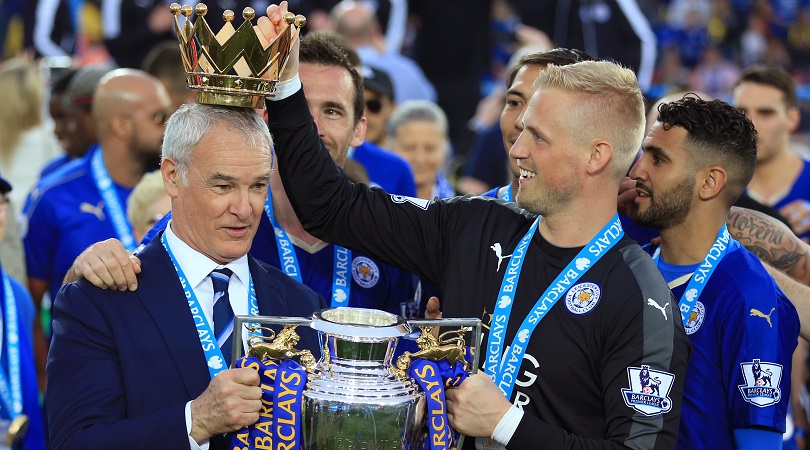
7. Leicester (2015/16)
Leicester’s remarkable title triumph was so unexpected that it feels somehow impossible to compare it to the big boys’ successes – yet forget about them being underdogs and it’s still a hugely dominant title victory, by an impressive 10 points. The Foxes lost only three times all season.
Claudio Ranieri’s charges ripped up the rulebook – whereas others were obsessed with possession play, Leicester were almost pure counter-attackers, and while others rotated to keep themselves fresh, 11 Foxes players made 30 or more league appearances. Jamie Vardy broke the Premier League record for scoring in consecutive games, Riyad Mahrez was the league’s best player – capable of scoring, creating and assisting – while N’Golo Kante was a revelation, re-popularising the tough-tackling, all-action defensive midfielder.
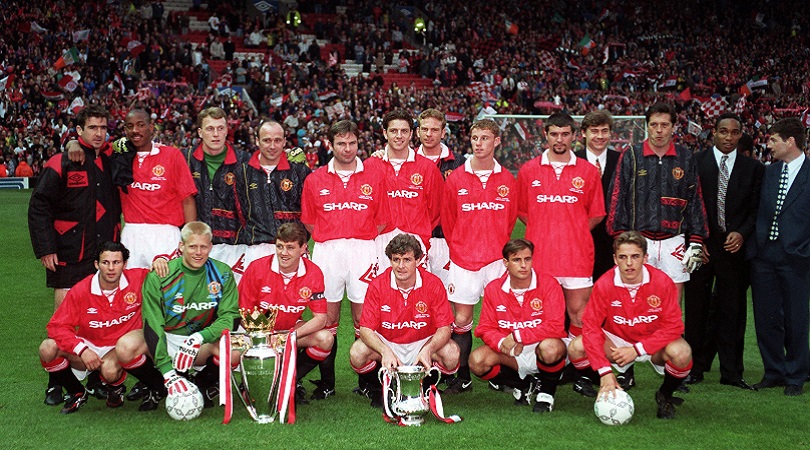
6. Manchester United (1993/94)
United were serial title winners during the Premier League’s formative years, but this was their most dominant triumph of the 1990s: a brilliant, formidable, consistent side. They were top of the table after 40 of their 42 matches – proof of their quality.
Their formation was widely considered a 4-4-2, although they were perhaps the first 4-2-3-1 Premier League side. Newcomer Roy Keane formed a don't-mess duo with Paul Ince - both box-to-box midfielders rather than holders. Two of Lee Sharpe, Andrei Kanchelskis and Ryan Giggs provided speed out wide, while the magnificent Eric Cantona orchestrated play behind targetman Mark Hughes.
The back four was barely ever broken and Peter Schmeichel was the league’s best goalkeeper. No one stood a chance.
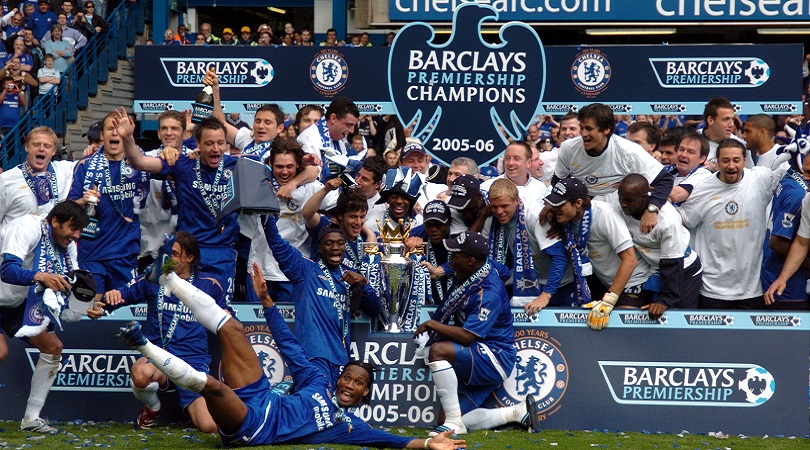
5. Chelsea (2005/06)
This Chelsea isn’t held in the same esteem as their title-winning side of the previous season, but they were nearly as good: only four fewer points and the same number of goals scored. Frank Lampard was still firing, Didier Drogba improved and Hernan Crespo contributed some crucial goals.
There wasn’t the same dynamism from Damien Duff and Arjen Robben, but Joe Cole became a regular and effectively sealed the title with a brilliant goal at Stamford Bridge against closest rivals Manchester United, while Michael Essien was the key addition.
There’s something strangely lacking about this Chelsea side – perhaps some genuine flair and more memorable moments. But in terms of their dominance over rivals, this is the most underrated Premier League title-winning side.
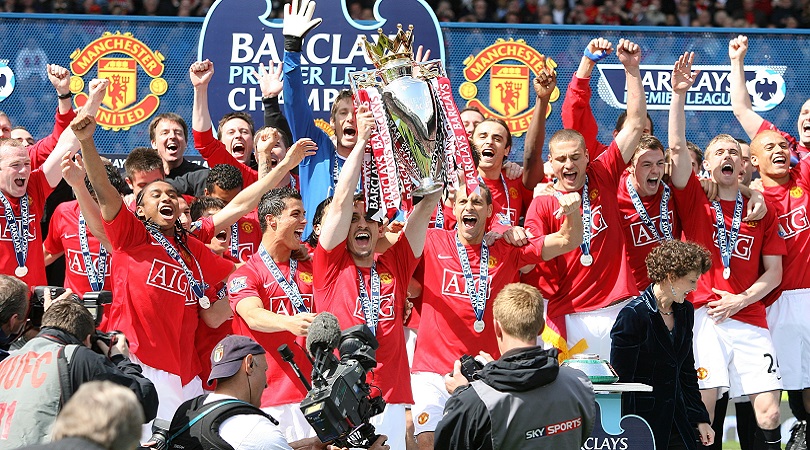
4. Manchester United (2008/09)
There’s a comparison with the 1999/2000 title winners to be made here: while the previous campaign is remembered more fondly thanks to the Red Devils’ Champions League success, they actually became a better side afterwards. Whereas Avram Grant’s ramshackle Chelsea side almost matched United in the league in 2007/08, this time they powered ahead of Rafael Benitez’s Liverpool – arguably the best non-title-winning side of the Premier League era.
Cristiano Ronaldo wasn’t quite so fearsome and the absence of Owen Hargreaves was a blow, but new boy Dimitar Berbatov provided both height and guile up top. Most remarkable, though, was the astonishing run of 14 clean sheets from November to late February – the most impenetrable period in Premier League history.
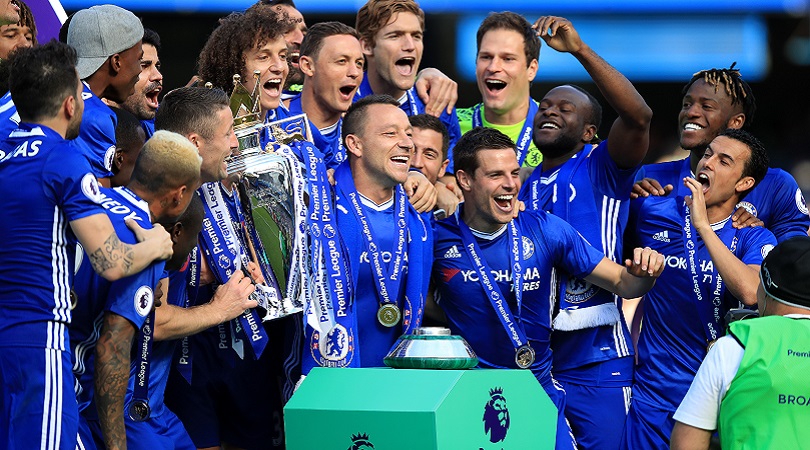
3. Chelsea (2016/17)
In one of the most competitive seasons ever, Antonio Conte’s side amassed 93 points – the second-highest in Premier League history – and helped to transform the tactics playbook.
After a slow start, Chelsea’s switch to a 3-4-3 formation brought a sudden run of six clean sheets and 12 straight victories which took them from eighth place to runaway title favourites. Opponents couldn’t cope with overlapping wing-backs of Marcos Alonso and Victor Moses, while Eden Hazard menacingly drifted inside from the left and Diego Costa banged in the goals up front.
The three-man backline held firm behind them, while N’Golo Kante proved the signing of the season for his boundless energy and ball-winning qualities in midfield.
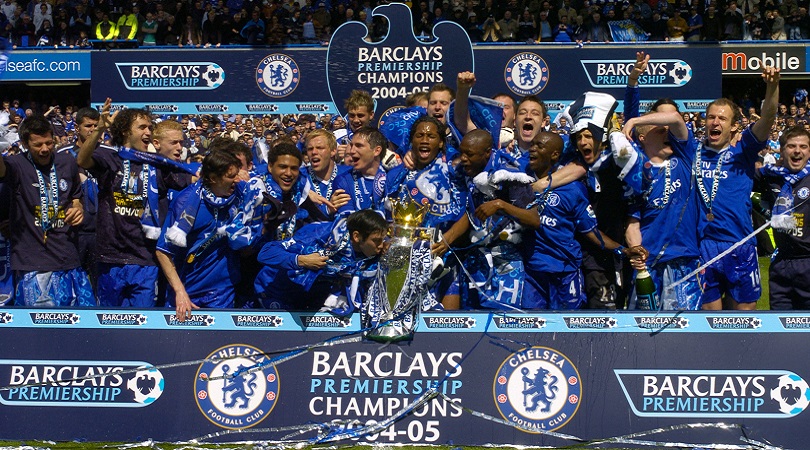
2. Chelsea (2004/05)
Jose Mourinho’s debut campaign in English football was based almost entirely around a solid defence – in 38 league fixtures, Chelsea conceded in only 13 games and just 15 goals in total, both mind-boggling figures. They also scored what remains the Premier League’s highest points total: 95.
The season started slowly in an attacking sense, with an over-reliance upon set-pieces. But the autumn introduction of Arjen Robben transformed Chelsea into a brilliant counter-attacking force; based largely around the concept of transitions, they sent Robben and Damien Duff speeding forward to destroy teams on the break.
Didier Drogba was yet to find his feet, but Eidur Gudjohnsen linked play excellently up top and Frank Lampard broke forward constantly to become a truly outstanding attacking midfielder. Holding midfielder Claude Makelele, meanwhile, was the crucial part of Chelsea’s 4-3-3.
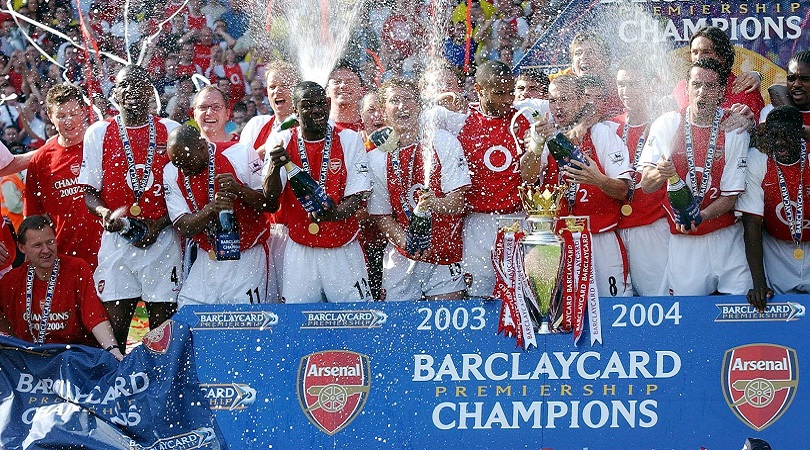
1. Arsenal (2003/04)
Other teams have triumphed with a larger points tally, or also won the Champions League. But Arsenal’s undefeated title-winning campaign remains a truly remarkable achievement: the only incidence of this happening since the 19th century.
Arsenal were an incredible attacking unit boasting the speed of Thierry Henry, the creativity of Dennis Bergkamp and goalscoring on either flank from Freddie Ljungberg and Robert Pires. Gilberto Silva and Patrick Vieira provided strength in the centre, while the back four of Ashley Cole, Sol Campbell, Kolo Toure and Lauren had all spent time playing further forward.
Arsenal boasted the league’s best attack and its best defence; they could dominate possession and counter-attack brilliantly in turn. There’s a reason why Arsenal’s “L 0” rather than Chelsea’s “Pts 95” remains the Premier League’s most revered statistic.
Greg Lea is a freelance football journalist who's filled in wherever FourFourTwo needs him since 2014. He became a Crystal Palace fan after watching a 1-0 loss to Port Vale in 1998, and once got on the scoresheet in a primary school game against Wilfried Zaha's Whitehorse Manor (an own goal in an 8-0 defeat).
 Join The Club
Join The Club











